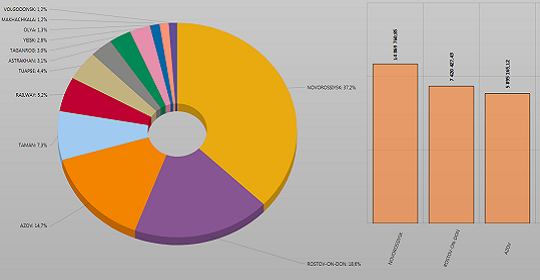The law on prohibiting the transshipment of goods from ship to ship on the high seas, developed by the Ministry of Transport of the Russian Federation, must protect the environment.
But some are worried that he will «protect» mainly the rights of the monopolists.
Transshipment of goods on the high seas is an alternative to using the services of ports, which charge money for this.
For example, in Novorossiysk ports, transshipment of 1 ton of cargo costs approximately $ 14-16.
On the high seas, the same can be done for free. True, there are incidents. For example, in 2019 in the Black Sea two tankers caught fire, which were engaged in oil transshipment.
This gave rise to the idea of adopting a law banning the transshipment of dangerous goods in Russian waters outside ports in order to protect the marine life from hazardous substances.
It is noteworthy that in such a formulation the bill raises almost no questions from anyone .
Oil transshipment on the open sea is not a frequent occurrence. It is, frankly, mainly engaged in by smugglers who transport oil illegally.
And hence the question: if they are already violating the illegal shipping ban, will the new transhipment ban stop them?
Extending the ban will make ports monopolists
The main reason for concern is that the State Council has proposed to replace the wording «dangerous goods» with «any goods».
In this case, each ship will simply be obliged to pay for the services of seaports. No options.
And in this case, the link to concern for the environment does not work. What damage will a fish get if 1,000 tons of wheat spill out into the sea? Nothing but good!
And if so, then there is every reason to suspect that the ban (or at least its extension to «any cargo») is being lobbied by interested parties. These can only be seaports.
Farmers are worried: if such a law is introduced, they will have to fork out extra money.
After all, not only will you have to pay without fail, the tariffs for transshipment may also increase.
Experts already predict that instead of $ 14-16 per ton, they can easily grow to $ 30-40. Coupled with high export duties on grain, this can finally «finish off» the farmers.
Therefore, we can only hope that the new law, if it is eventually adopted, will not contain restrictions that are destructive for all manufacturers.

